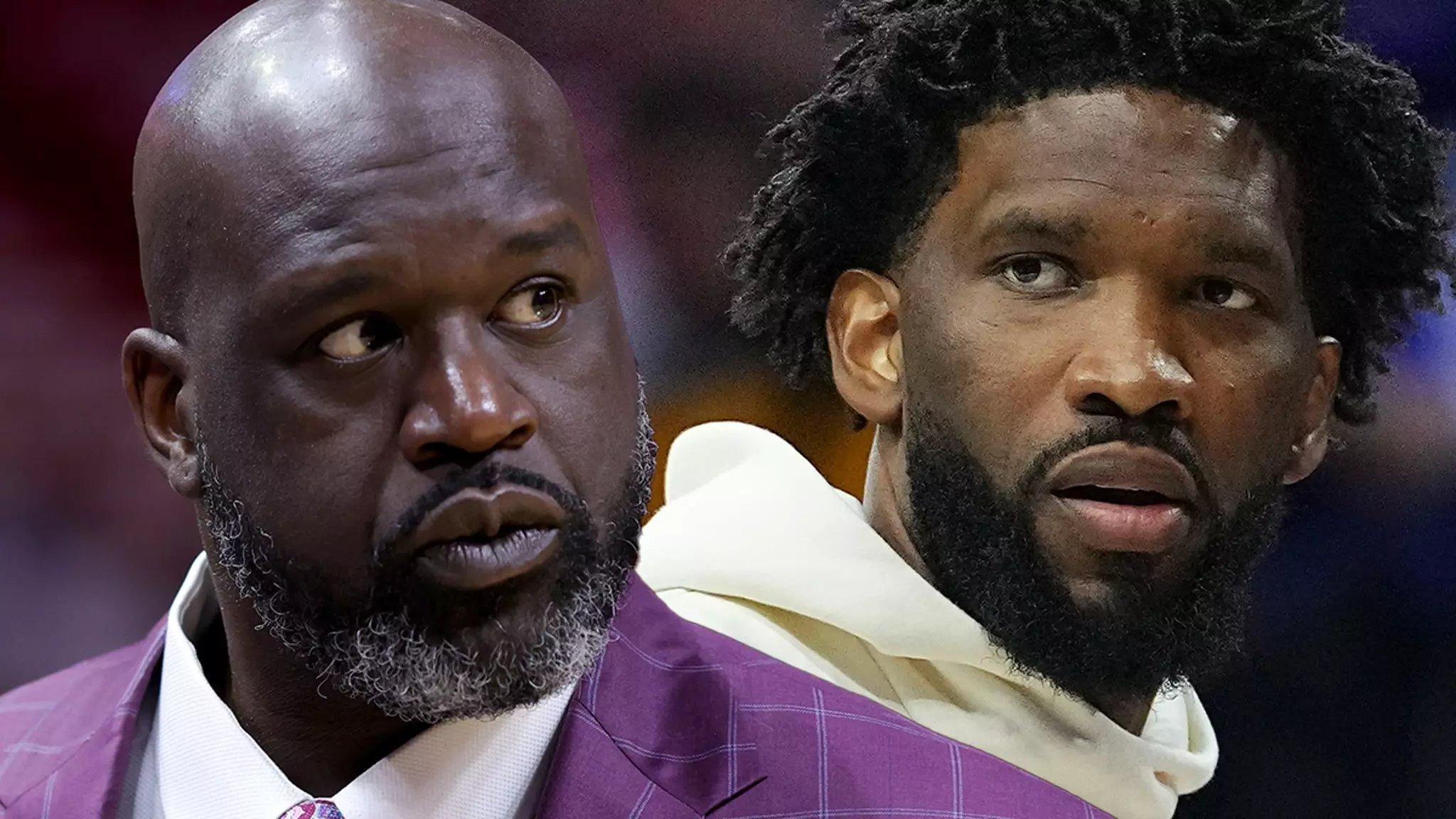In a recent episode of “Big Pod With Shaq,” basketball legend Shaquille O’Neal didn’t hold back his criticism of Philadelphia 76ers star, Joel Embiid. O’Neal’s comments highlighted the growing concern regarding players’ willingness to participate in games, particularly back-to-back matchups. Post-season performances and the health of athletes have become hot topics in professional sports, but O’Neal’s brazen assertion that Embiid is “soft” stirred the pot, tapping into deeper issues surrounding player mentality and fan expectations.
Joel Embiid’s recent decision to skip back-to-back games due to “left knee injury management” has raised eyebrows, especially after he opted out of the preseason for similar reasons. For a player of Embiid’s caliber, the choice to take time off, particularly when he is healthy, can reflect either on personal health concerns or potentially a lack of desire to compete at an optimal level. O’Neal’s assertion that “you want to be that guy” implies a broader expectation that stars should embrace the grind and lead by example. The underlying question arises: at what point does managing physical well-being cross into the realm of avoiding the mental grind of competition?
O’Neal’s tenure in the NBA spanned nearly two decades, during which he amassed four championship rings and continuous accolades. He famously showed up to play night after night, affirming that every game presented an opportunity to demonstrate greatness. His concerns about Embiid not facing formidable defensive challenges (like double or triple teams) and still choosing to sit out put into perspective the expectations older generations of players had for their counterparts. It presents a curious dichotomy—today’s athletes prioritize health and longevity, whereas previous legends were almost expected to bear the brunt of physical stress for the sake of competition.
Potential Implications for the NBA
The NBA’s investigation into whether Embiid is violating the player participation policy adds further intrigue to this ongoing narrative. This policy was implemented to curb the trend of healthy players resting, aiming to ensure fan engagement and competitive integrity. As more players voice their concerns about back-to-back games, it raises a dilemma: should the league prioritize player health, or should it uphold the entertainment value and demand for star players on the court?
Looking to the Future
As the debate continues, one must ponder the implications on team dynamics, fan engagement, and league revenue. A player of Embiid’s stature holds significant weight in both the locker room and public eye; hence, his actions carry repercussions beyond the court. Ultimately, for both legends like Shaq and emerging stars like Joel Embiid, the essence of basketball lies in the passion for the game and the unyielded determination to compete at the highest level. As the season unfolds, how Embiid responds to this criticism may set the tone for not only his legacy but also the future of player-team relationships within the NBA.


Leave a Reply